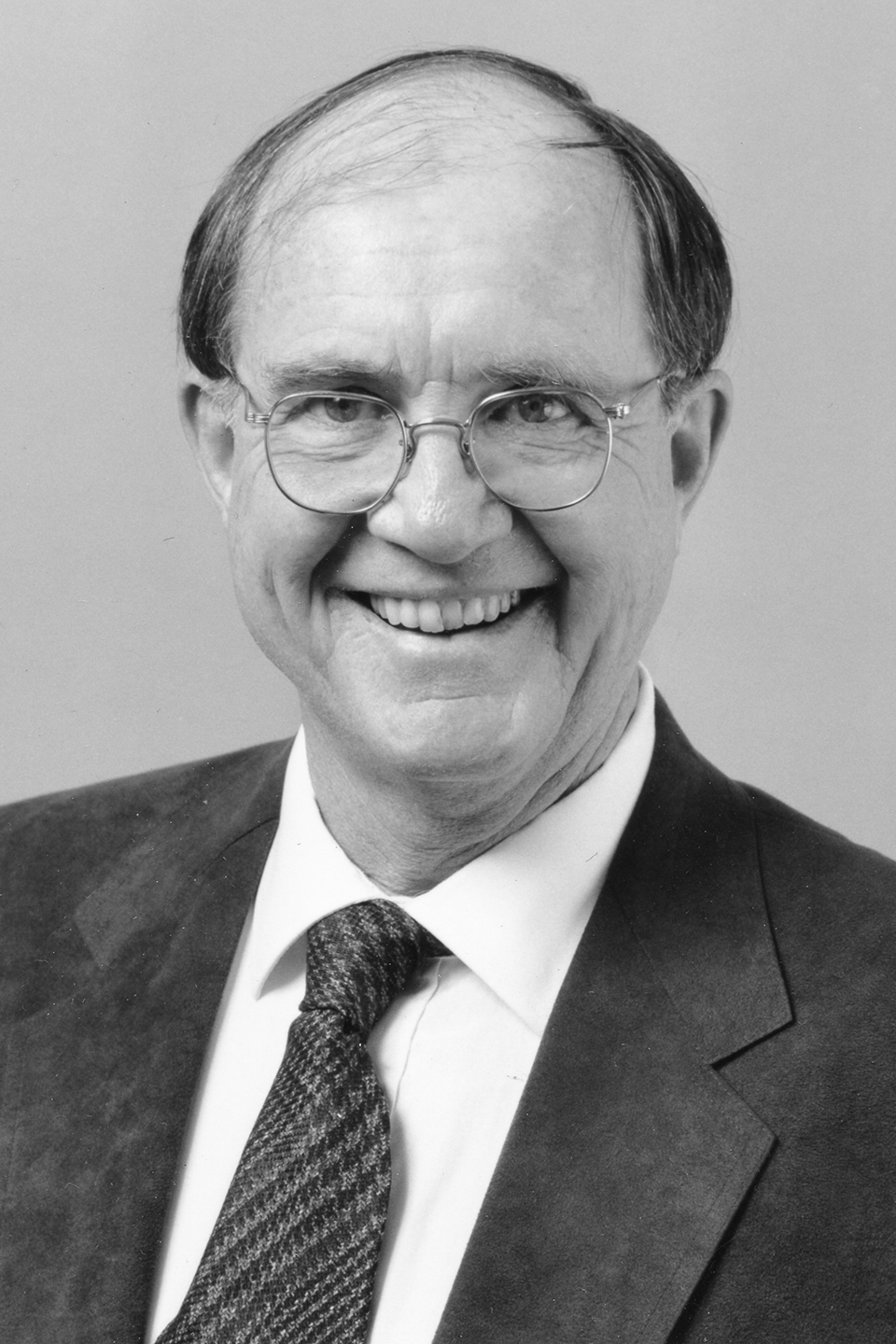David Tyack, professor emeritus of education and of history at Stanford, died Oct. 27 of complications from Parkinson’s disease. He was 85 and passed away peacefully at his home on the university campus, according to his family.

David Tyack, 1930-2016 (Image credit: Stanford News Archive)
Tyack joined Stanford in 1969. He was a social historian of education, best known for his interpretations of the history of American education and history of school reform.
An influential researcher, Tyack, the Vida Jacks Professor of Education, Emeritus, wrote more than 10 books and numerous papers.
Colleagues, friends and former students described him as a scholar of great intellect and a man of enormous social conscience.
The One Best System, published in 1974, which analyzed the organizational biography of city schools, remains today the prevailing wisdom for this area of scholarship.
In a 2005 article in the Chronicle of Higher Education, Marvin Lazerson, then professor of education at the University of Pennsylvania, said The One Best System “set the scholarly standard for years to come, and introduced America’s educational history to a generation of readers and scholars.”
Lazerson called Tyack’s body of work “a model for scholars to follow, both charting new fields and elaborating on older themes.”
During his academic career, Tyack received multiple grants, fellowships and awards, and served as president of the History of Education Society from 1970 to 1971. He collaborated with a variety of colleagues studying everything from urban schools and school boards to the effects of the feminization of elementary school teaching.
“David was the ideal interdisciplinary scholar, thoroughly versed in his own discipline but always open to new ideas and methodologies,” said Professor Emerita Myra Strober, whose articles with Tyack included “Jobs and Gender: A History of the Structuring of Educational Employment by Sex” and “Why Women Teach While Men Manage.”
“He was also kind, upbeat, curious and committed to the exploration of common ground,” Strober said. “And at a time when few male faculty supported gender equity, David was at the forefront of the movement.”
With Larry Cuban, professor emeritus of education at Stanford Graduate School of Education, Tyack wrote Tinkering Toward Utopia, investigating how different kinds of participants in the politics of school reform defined both problems and solutions in different ways.
Paul Mattingly of the Journal of American History said Tinkering “belongs in a special genre of books about education by historians.” He said the book “demonstrates how historical perspectives can reconstruct a policy discourse.”
Tyack cared deeply about how the education system worked and of communities that were neglected by it. He approached his research as an opportunity to keep learning and revising, and once said that completing a book didn’t close a door on a subject, but rather opened new ones.
“David Tyack was one of the most influential historians who ever wrote about public schools in America,” said William J. Reese, professor at the University of Wisconsin-Madison. “David always asked the right questions: How can history illuminate our understanding of today’s pressing concerns? How can urban schools better serve a diverse nation? How can they help address deeply rooted inequalities?”
Tyack found, ironically, that his own scholarship got in the way of new discoveries. In a proposal to the Spencer Foundation for funding for a new book, he wrote, “In submitting essays for blind review by journals I have twice been advised to read David Tyack to discover the error of my own interpretation.”
Tyack encouraged others to forge their own path, as well.
“Everyone who works in the history of education also works in David Tyack’s shadow, of course,” said Jonathan Zimmerman, professor of education and history at the University of Pennsylvania. “But David wanted me to move out of it. I’m not sure I ever succeeded, but his characteristically modest advice certainly helped me find my scholarly voice.”
Tyack said his intellectual odyssey was often triggered by experiences he had in public schools: teaching American history in a Portland, Oregon, high school or serving for a quarter as a first-grade co-teacher in Palo Alto, California, or talking with teachers and parents about desegregation and community control.
He was a dedicated mentor of junior scholars and showed genuine interest in the community of learning and in an exchange of ideas. He invited students and friends on hikes in the hills surrounding Stanford and just “chatted people up,” said David Labaree, also a Stanford professor of education.
“David cared so deeply about his friends and colleagues, his students, his community and the great American public school system – its teachers, students and mission, its quest for equity and joyful learning,” added Linda Darling-Hammond, professor emerita of education at Stanford.
Jack Schneider, an education historian who received his PhD from Stanford GSE in 2010, said Tyack “was the kind of person you wake up one day and realize has become family.” He said because of Tyack’s influence, he is a better teacher and scholar.
Tyack’s teaching was honored by Stanford in 1996 with the Walter J. Gores Award for excellence in teaching. He was praised for “decades of the highest quality undergraduate and graduate teaching, leaving indelible impressions on the minds of generations of Stanford students, for his creative and dramatic ability to make the past ‘come alive,’ and for his innovative efforts to involve students with the subject matter, transforming history from monologue into a conversation.”
Tyack was “a rare kind of academic,” said Cuban, “one whose research, teaching and advising were wrapped up in smarts, humility and a sensitive thoughtfulness.” The pair biked and hiked in the San Francisco Bay Area, as well as co-taught classes at Stanford.
Tyack, Cuban recalled, set a high standard in how he lived life, nurtured ideas and practiced his craft.
Tyack was born Nov. 17, 1930. He received his undergraduate and graduate degrees from Harvard University, then taught at Reed College, from 1959 to 1967, and the University of Illinois, from 1967 to 1969, before coming to Stanford.
He is survived by two sons, Daniel Tyack and Peter Tyack. He was preceded in death by his partner, the late Stanford political science lecturer Elisabeth Hansot.
[Source:-Stanford News]







